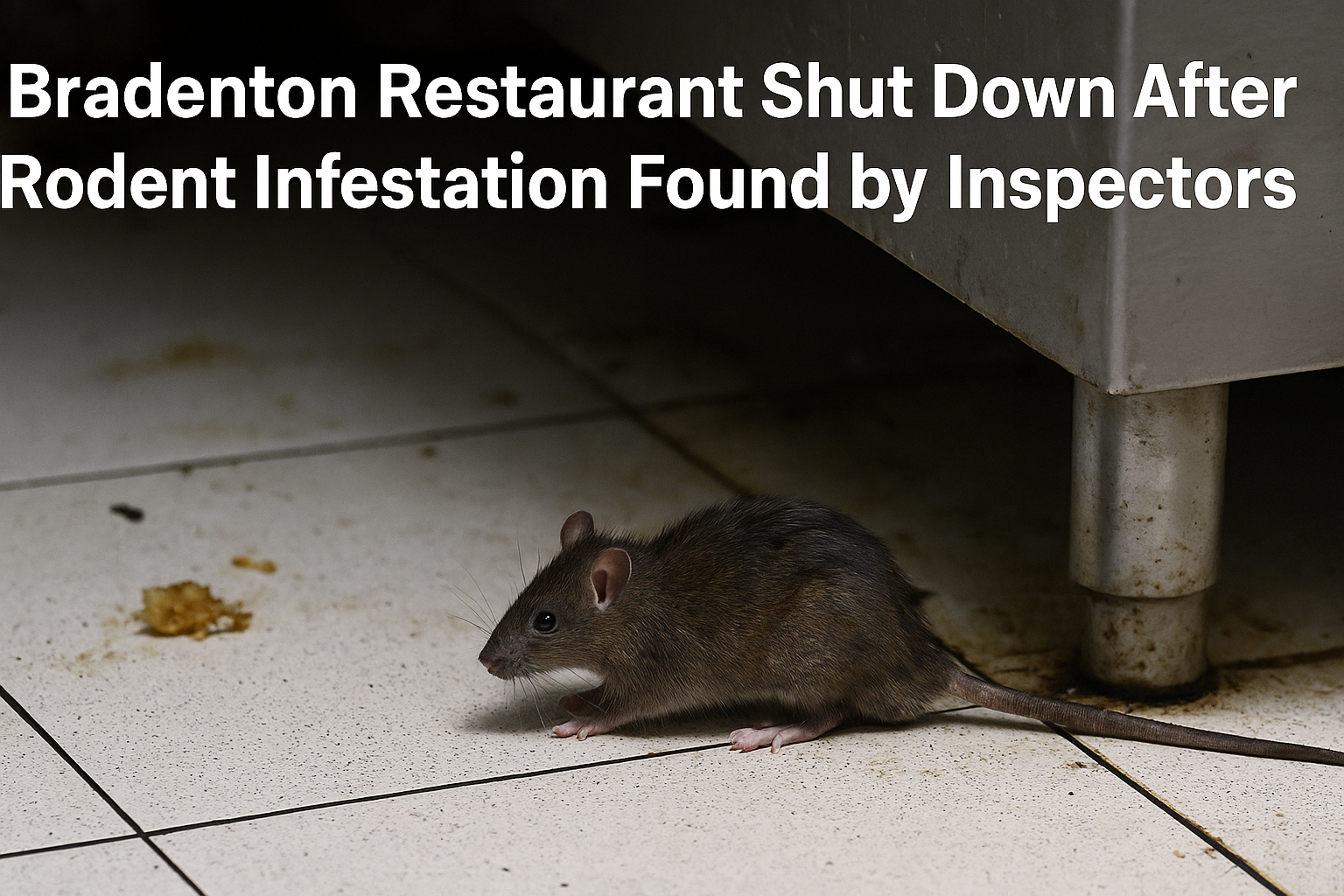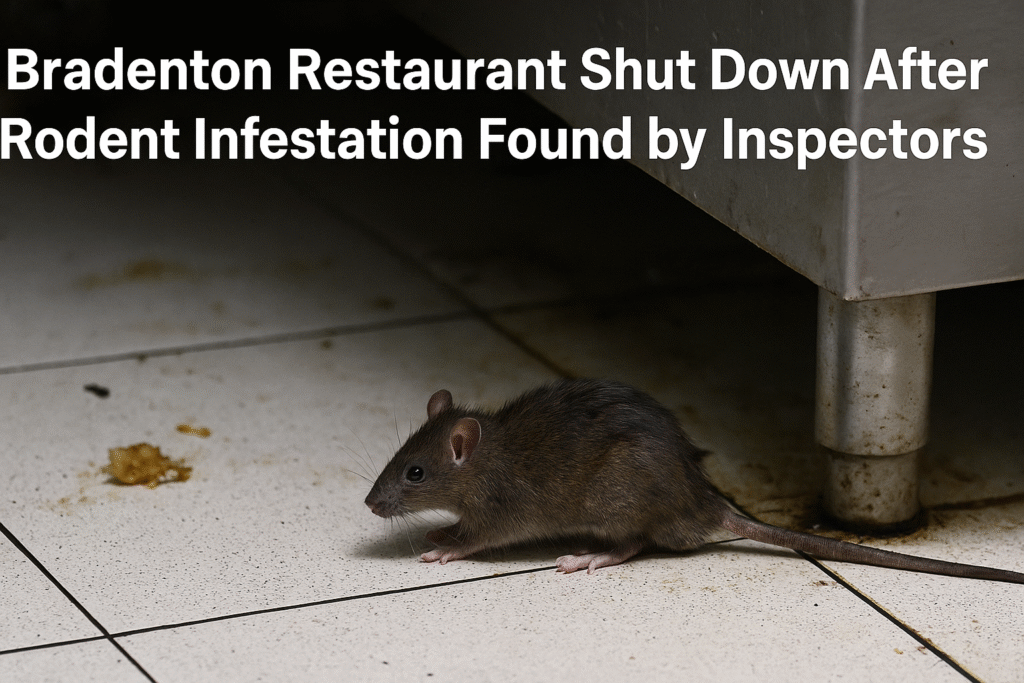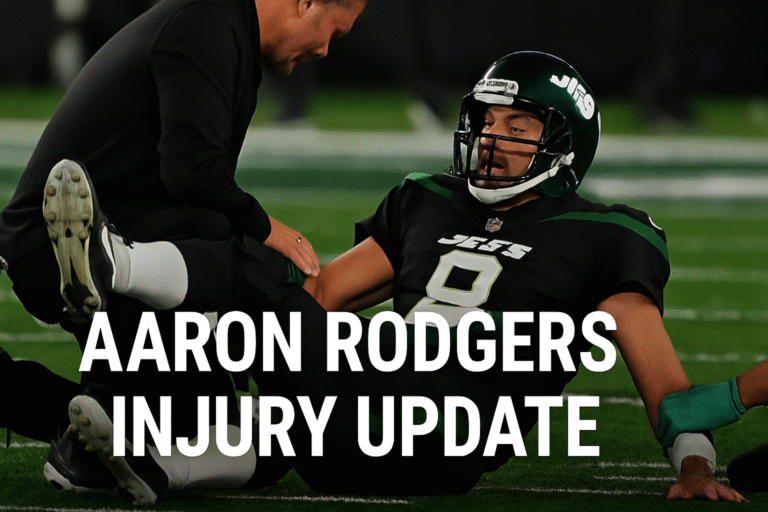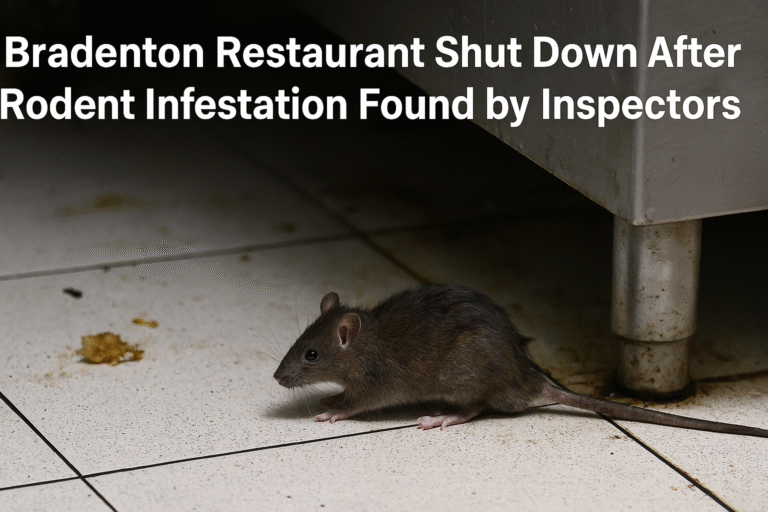
When it comes to dining out, cleanliness and hygiene are just as important as taste. Recently, a popular Bradenton restaurant was forced to close its doors after health inspectors uncovered a rodent infestation inside the establishment. The news has shocked locals, raising concerns about food safety and how restaurants are monitored for public health.
This incident serves as a stark reminder that food service businesses must maintain the highest standards of hygiene to protect their customers and their reputations. Below, we take a deep dive into what happened, why rodent infestations are a serious risk, how inspections are conducted, and what diners can do to ensure they choose safe places to eat.
What Happened in Bradenton?

During a routine health inspection, authorities discovered multiple signs of rodent activity in a Bradenton restaurant. Reports revealed droppings in the kitchen, gnawed packaging, and unsanitary conditions that made it impossible for the restaurant to continue operations safely.
The inspection results were severe enough that officials immediately shut the restaurant down until corrective actions could be taken. For diners who frequented the establishment, the news was both alarming and disappointing. After all, nobody expects to walk into their favorite eatery and later find out it was serving food in rodent-infested conditions.
Why Rodent Infestations Are a Big Deal
Rodents are more than just an unpleasant sight—they pose real health risks. They are known carriers of bacteria, viruses, and parasites that can easily spread through food and surfaces. Some of the most concerning issues linked to rodent infestations include:
- Food Contamination – Rodents can chew through packaging, leaving behind urine, droppings, or saliva, which can contaminate food.
- Spread of Disease – They carry harmful pathogens that can cause illnesses such as salmonella, leptospirosis, and hantavirus.
- Structural Damage – Gnawing rodents can damage wiring, wooden shelves, and storage areas, creating long-term maintenance issues.
- Loss of Consumer Trust – Once news of an infestation spreads, restaurants often struggle to rebuild their reputation even after fixing the problem.
How Restaurants Are Inspected
In Florida, restaurants undergo regular health inspections to ensure they meet state food safety standards. Inspectors look for compliance in areas such as:
- Food storage and handling
- Cleanliness of cooking equipment
- Pest control measures
- Employee hygiene practices
- Proper waste disposal
If serious violations are discovered, like a rodent infestation, inspectors have the authority to shut the restaurant down immediately until corrective measures are taken.
The Impact on the Bradenton Community
For Bradenton locals, this closure is more than just a temporary inconvenience. Many residents view restaurants not just as places to eat, but as part of the community’s social fabric. The incident has raised questions about how widespread such issues might be and whether enough is being done to prevent them.
Customers are now becoming more cautious about where they dine, and other restaurants in the area may face stricter scrutiny to reassure the public.
Can Restaurants Bounce Back After Infestations?
The good news is that a shutdown does not necessarily mean the end of a restaurant’s journey. Many establishments that face health violations manage to reopen after thorough cleaning, pest control treatments, and re-inspections. However, success depends on:
- Transparency – Being open with customers about the problem and how it was resolved.
- Commitment to hygiene – Implementing stronger cleaning and pest prevention measures.
- Public relations efforts – Rebuilding trust through promotions, community engagement, or new safety certifications.
Still, it often takes time for a restaurant to regain its loyal customer base after such a scandal.
What Diners Can Do to Protect Themselves
As a customer, you may not always know what goes on behind a restaurant’s kitchen doors. However, there are a few steps you can take to ensure you’re eating at safe establishments:
- Check inspection reports – Many states publish health inspection results online.
- Observe cleanliness – Take note of how clean the dining area, restrooms, and staff uniforms are.
- Trust your instincts – If something feels off about the food quality or environment, it’s best to avoid the place.
- Support transparency – Restaurants that proudly display their cleanliness ratings or certifications often take hygiene seriously.
Preventing Infestations: What Restaurants Must Do
To prevent infestations, restaurants must invest in consistent pest control and strict sanitation protocols. This includes:
- Regularly sealing food storage containers
- Scheduling professional pest control services
- Keeping trash areas clean and secured
- Closing gaps or cracks where rodents can enter
- Training staff to recognize early signs of pests
Ultimately, prevention is much easier and more cost-effective than dealing with a shutdown.
Looking Ahead
The closure of a Bradenton restaurant due to rodent infestation has become a wake-up call for both restaurant owners and customers. For businesses, it highlights the importance of consistent cleanliness and proactive pest control. For diners, it emphasizes the need to be vigilant about where they choose to eat.
While this incident is concerning, it may also encourage stricter standards across the local restaurant industry, ensuring that food safety remains a top priority. In the long run, such vigilance benefits everyone—owners, staff, and most importantly, the customers.
FAQs
Q1: Why do health inspectors shut down restaurants for rodent infestations?
A: Rodents pose severe health risks, including the spread of diseases and contamination of food. When inspectors find evidence of infestation, they act immediately to protect public health.
Q2: Can a restaurant reopen after being shut down for hygiene violations?
A: Yes, once the issues are corrected, the restaurant undergoes re-inspection. If it meets the safety standards, it can reopen.
Q3: How can customers check if a restaurant has passed health inspections?
A: In most states, inspection results are published online on official health department websites. Customers can also sometimes see ratings posted at the restaurant itself.
Q4: What should I do if I notice signs of pests in a restaurant?
A: You should report your concerns to the local health department. Avoid eating at the establishment until the issue is resolved.
Q5: Do all restaurants face routine inspections?
A: Yes, all food-serving establishments are subject to regular inspections to ensure compliance with safety and hygiene standards.







